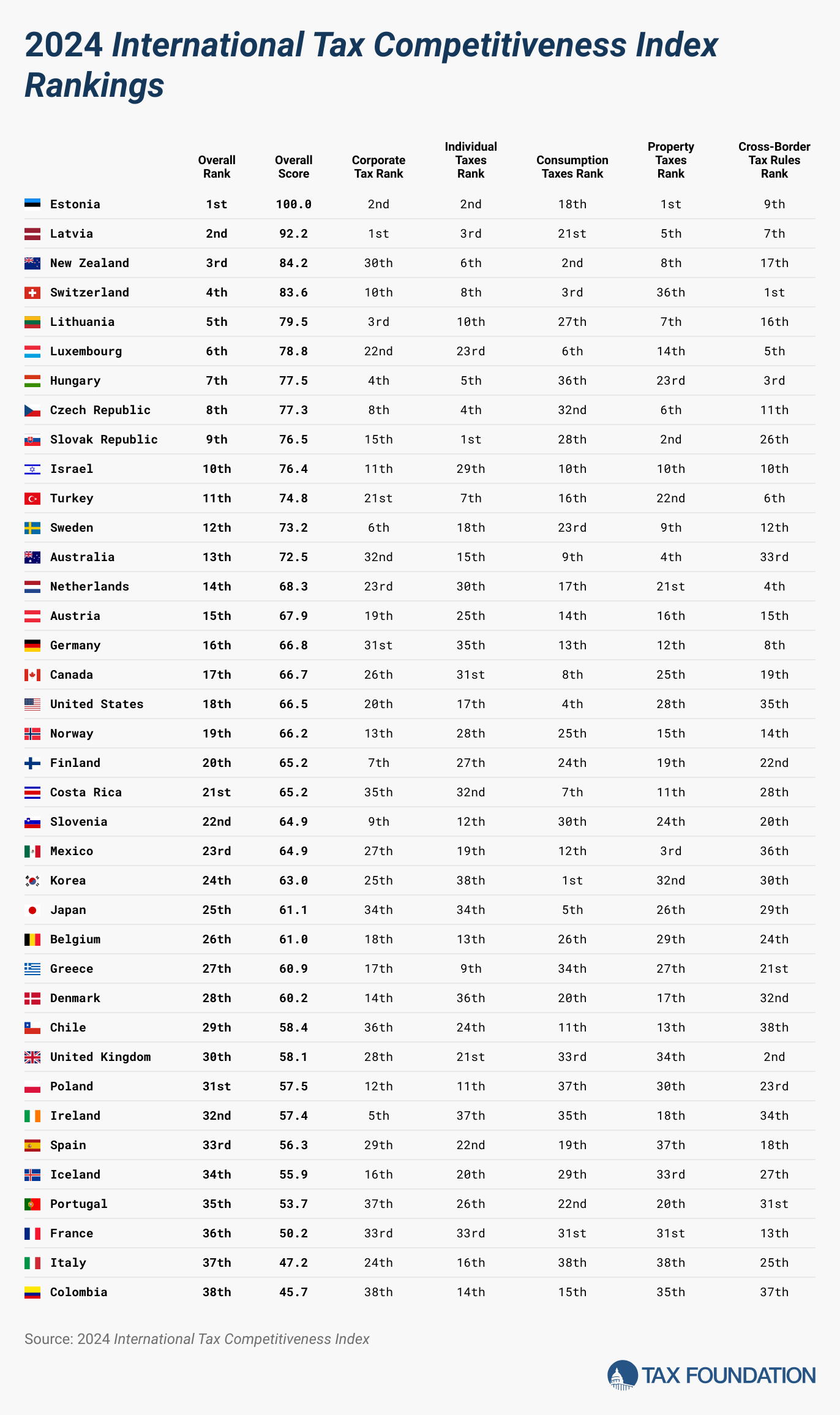

A recent report from the Tax Foundation highlights how Spain’s tax system is becoming increasingly uncompetitive, particularly for property owners. With one of the highest property tax burdens in the OECD, Spain is driving away investment and stifling economic growth.
Spain’s tax burden: a barrier to growth
In a blog article commenting on the Tax Foundation’s latest report and international ranking, Cristina Enache of the Tax Foundation, a tax research and advocacy outfit, explains how Spain’s tax policy is holding back economic growth and making the country poorer. “Spain’s poorly designed tax policy hurts its competitiveness,” is the title of the article, which points out that both the central government and regional governments share responsibility for the decline. Spain has suffered from “multiple tax hikes, new taxes, and weak performances in all key tax efficiency metrics” over the past five years.
While Spain ranks mid-table for VAT and individual income taxes, its real failure is in property taxation. The country imposes a wide range of levies on property owners, including:
- A tax on real property
- A property transfer tax
- Capital duties
- A financial transaction tax
- A net wealth tax
- An inheritance tax
- A gift tax
This extensive web of taxes creates distortions in the property market, discourages investment, and makes Spain one of the least competitive countries in the OECD, especially when it comes to property taxation. It should be said that the United Kingdom doesn’t rank much better, in 30th place overall, and 34th for property taxes.


The wealth tax: A relic from the past
One of the most damaging aspects of Spain’s tax system is its net wealth tax, a policy that most OECD countries have abandoned. Spain repealed the tax in 2008, only to reintroduce it three years later. Some regions, such as Madrid, Andalusia, and Extremadura, offer full exemptions, while others impose rates of up to 3.5%. And in 2022, the central government doubled down by introducing a so-called “temporary” solidarity tax on high-net-worth individuals—only to make it permanent.
The response from regions like Madrid and Andalusia? They found a workaround by offering tax deductions to offset the central government’s tax grab, ensuring that they—not the national government—would collect the revenue while still offering some relief to wealthier residents.
Inheritance taxes: High rates, low revenue
Spain also stands out for its punishing inheritance and gift taxes, which reach a staggering 87.6% in Asturias for distant heirs. Spanish regions have the highest inheritance tax rates in Europe, despite the fact that such taxes generate little revenue. A recent study found that inheritances actually help reduce wealth inequality, making the case for eliminating them altogether. Instead, the central government is considering introducing yet another layer of inheritance tax to override regional deductions for close heirs.
Will Spain reform its tax system?
The Tax Foundation’s recommendation is clear: Spain should implement tax reforms that encourage economic growth by making the system more neutral and competitive. However, given the track record of Spain’s left-wing government under Pedro Sánchez, the more likely scenario is continued tax hikes—especially targeting property owners and, perhaps, foreign buyers and owners, who are seen as a soft touch by law makes and tax inspectors.
For investors and property buyers, Spain’s tax landscape is looking increasingly hostile, just like the UK. The more the government squeezes property owners, the more it risks driving away investment and stifling economic growth. If Spain wants to remain competitive, a serious rethink of its tax policies is long overdue.